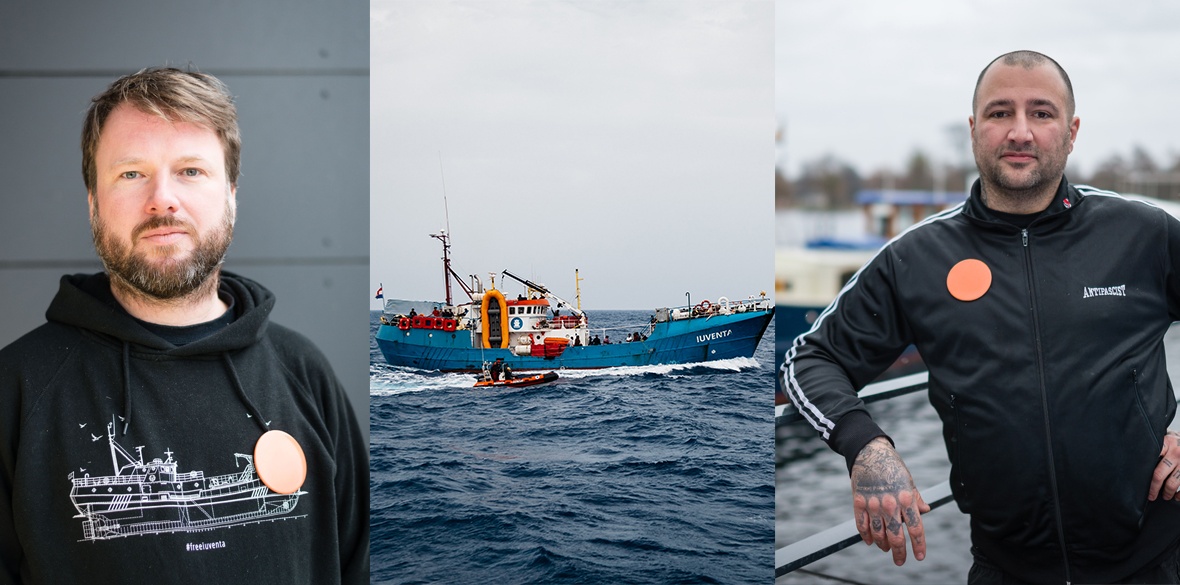This is the last article you can read this month
You can read more article this month
You can read more articles this month
Sorry your limit is up for this month
Reset on:
Please help support the Morning Star by subscribing here
IT’S normal now for the NGO refugee rescue ships operating in the Mediterranean to expect to be met with outright hostility by the European Union and the Italian and Maltese governments.
There were several cases last year when Italy and Malta blocked charity rescue ships — like the Alan Kurdi, Sea Watch 3, Ocean Viking, Open Arms, Mare Juno and others — from disembarking the rescued in their ports for weeks.
For a few months towards the end of last year and the beginning of this one, conditions appeared to be improving for the civil fleet, as the small collection of loosely affiliated NGO ships are known collectively.
They were still being forced to wait at sea while EU member states squabbled over who would take in their rescued refugees but only for a matter of days, not weeks.
Then Covid-19 happened.
Europe has, once again, found another reason to justify blocking its ports to the civil fleet, to seize their ships and leave refugees to die of thirst as they float across the Mediterranean or to push them back to war-torn Libya — as Malta has done multiple times recently.
But things weren’t always this bad.
At the beginning of the so-called “migrant crisis” in 2015 — when the civil war in Libya intensified and thousands were forced to reach safety in Europe by crossing the world’s deadliest border — the civil fleet’s efforts were welcomed.
“In the beginning the Italian coastguard was really thankful that the NGOs were there,” says Dariush Beigui, a German activist and former captain of the rescue ship Iuventa.
“They said: ‘Thank you for helping us. We couldn’t manage alone’.
“They went on the ships. They visited the Iuventa. They said: ‘Oh you do such a great job on such a small ship. It’s good that you are here’.”
Owned by the German organisation Jugend Rettet (Youth Saves), the Iuventa was one of the first NGO rescue ships to begin operating in the Mediterranean following the migrant crisis.
Between August ’16 to August ’17, the Iuventa’s crew saved around 14,000 lives in 16 missions.
Those missions started in Malta, where the Iuventa was docked.
The ship’s volunteers would gather and train there for a few weeks. Then, when ready, they’d head to the search-and-rescue (SAR) zone off the coast of Libya and work with the European coastguards and the Maritime Co-ordination Centre (MRCC) in Rome.
For a time, everything was normal … or as normal as anything can be in a situation like that, Beigui says.
“Every mission was different. Of course, there’s some kind of routine. But in the end, you never know what to expect. You were always in, like, a big car accident on the highway. It’s always the same but it’s not the same.
“You never knew if you would find the boats in a good condition. You didn’t know if the boat would be completely full, if it had an engine, if there were any injured people on it, or if the Libyan coastguard would come and shoot at you.
“So for nearly 10 months everything was ‘normal’. We worked pretty good together, MRCC Rome and us.
“We learnt later that an investigation against us began in September 2016, two or three months after the first mission.
“So in the end, nearly the whole of the Iuventa’s operation was under investigation.”
The Iuventa usually acted as a first responder, meaning that its crew would locate refugee boats and then provide them with life vests, food and water, blankets, etc.
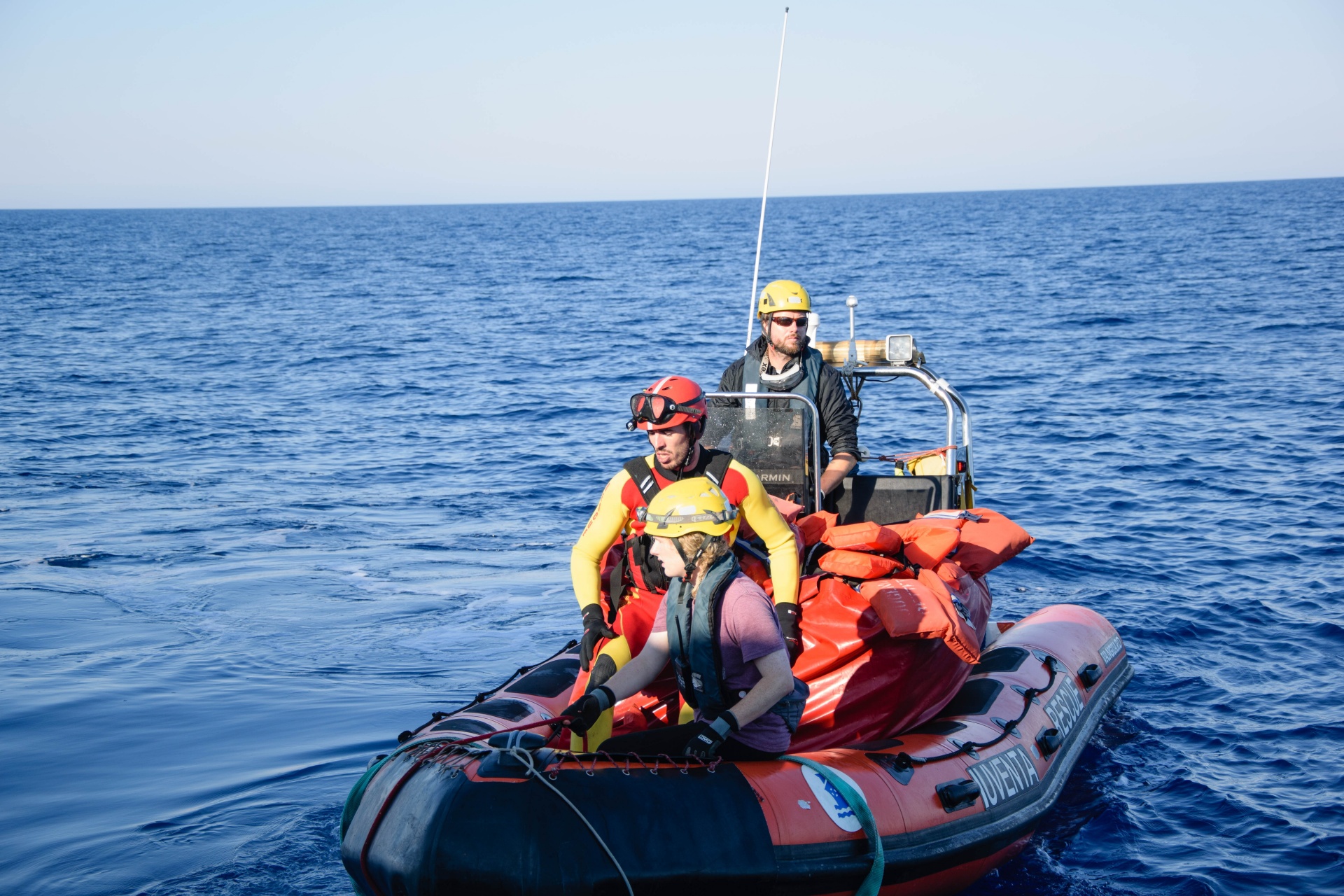
Hendrik Simon, also from Germany and a member of the Iuventa’s crew, worked on the ship’s smaller rigid-hulled inflatable (RHIB) boats that approached the refugees with the supplies.
“At that time there were a lot of different NGO assets in the Libyan SAR area,” he says.
“One of the other NGOs ships at that time was the Vos Hestia. It was chartered by Save the Children.
“By chartering we mean they didn’t buy the ship. It was owned by an Italian shipping company which provided the nautical staff, like the captains and engineers, and also two security guards.
“The two security guards were on their first mission. Being in the central Mediterranean and witnessing what happens there for the first time, they thought they saw something wrong and made up in their minds that the Iuventa was working with human smugglers.
“When they got back to Italy, they emailed the Italian secret service, Five Star Movement politicians and to the office of Matteo Salvini.”
Salvini, who was then Italy’s interior minister and still is leader of the country’s far-right party The League as well as being an icon for xenophobes across the world, was hell-bent on keeping refugees out of Italy.
The next time the Vos Hestia set sail, Salvini and the secret police had installed an undercover cop on board.
“He misinterpreted some images — willingly or unwillingly, we don’t know — that led to accusations against us, that led to the ship’s confiscation and the investigations against 10 crew members,” Simon says.
“I’m one of them,” says Beigui.
“Me too,” Simon replies, adding: “In the end we had ongoing investigations against us by five different authorities in Italy: two different types of secret services and a police force that usually investigates the Mafia.
“The effort they were putting in to find some evidence of wrong doing against us was like they were working on a huge case against organised crime. It was ridiculous how big they made this.”
With the state and Salvini’s goons aligned against them, the Iuventa’s days were numbers.
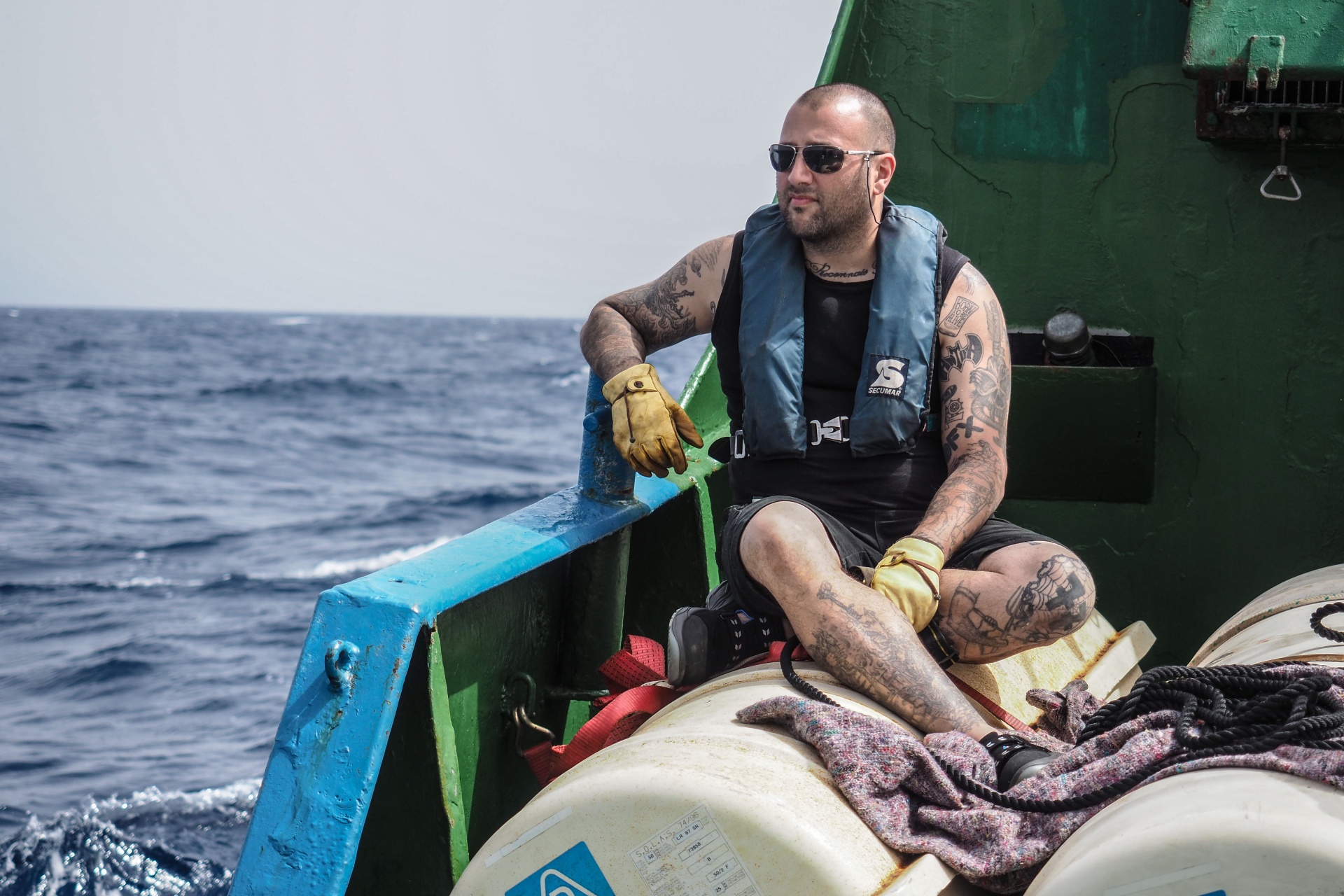
What happened next, Beigui says, was an example of how far the authorities were willing to go to repress the civil fleet.
“The Iuventa was not used to transfer people to Italy. It was a small ship compared to other NGO ships.
“We were always clear with the MRCC that we could only take people on board for a short time (maybe a day or two) and that someone else would have take them to Italy.
“It was not possible for us to take people there because the ship’s deck couldn't shelter them from the wind or the waves. We only had one toilet … There were many reasons why we couldn’t do that.
“The MRCC always respected that and never forced us to do anything that would put people in danger.
“But then in May 2016, we had around 150 people on board and the MRCC gave us a rendezvous position where another NGO ship was that could take them to Italy.
“We started to do that, thinking everything was normal. But while we were on the way, the MRCC called us again and said: ‘You have to take the last 25 people to Lampedusa yourselves’.”
Lampedusa is a small Mediterranean Italian island south of Sicily and west of Malta. It usually took the Iuventa a day and a half to get there from the Libyan SAR.
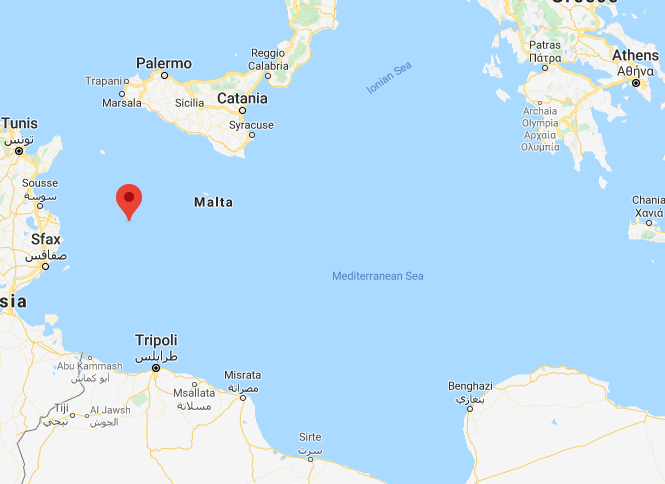
“There was a back and forth of emails and eventually the MRCC wrote one back all in capital letters saying: ‘YOU MUST TAKE THE PEOPLE TO LAMPEDUSA’.
“We kept refusing. In the end they caved in and said we could take 20 of the guests to another ship but that last five we should take to Lampedusa.
“We didn’t understand the situation. Like I said, we worked really well with the MRCC before. They are responsible for saving people's lives at sea, not only refugees but every seafarer. We never thought they would do something that would put people in danger.
“On the way north to Lampedusa, two other NGO ships called us saying: ‘Hey, we have eight refugee boats around us. You have to come and help us’.
“And we were like: ‘Okay but the MRCC told us we should go north to Lampedusa’.
“So they started to discuss with the MRCC. And we started to discuss with the MRCC again. But in the end the MRCC said the most important thing for the Iuventa was to bring the five people to Lampedusa.
“It took us one-and-a-half days to get there. We were there for about eight hours. Some of the crew were interviewed by the police. And then we sailed back.
“We were gone from the SAR area for three days. And in those three days, there were 21 boats in distress and four of them disappeared. So that means around a thousand people drowned.
“Later when the ship was confiscated, we learnt that the secret services used that time in Lampedusa to instal listening devices in the bridge.
“For me, the subtext here is that the MRCC doesn’t care that a thousand people died because it was more important for them to investigate 10 left-wing activists. Because we are Europeans and the others were not. Those thousand people don’t count.”
On August 2 the ship was seized in Lampedusa. The cops said it was a “pre-emptive” act to prevent the ship from being used in any possible criminal activity in the future.
“If they had found any collaboration at all then some of us would have been in jail already and none of us is.” Simon says.
“The ship is still confiscated. The investigations are ongoing. But in the end, nothing has come out. All the evidence they showed for the confiscation of the ship was completely erroneous.
“Forensic Architecture made a 30-minute film about the accusations against the seizing of the ship. They countered all of them and said the allegations were completely bullshit.”
“All the allegations we know of,” Beigui interjects. “We know all the accusations for seizing the ship but we don't know what they have against the people.”
Three years later and the investigations against 10 members of the Iuventa are still hanging over their heads and no charges have yet been made.
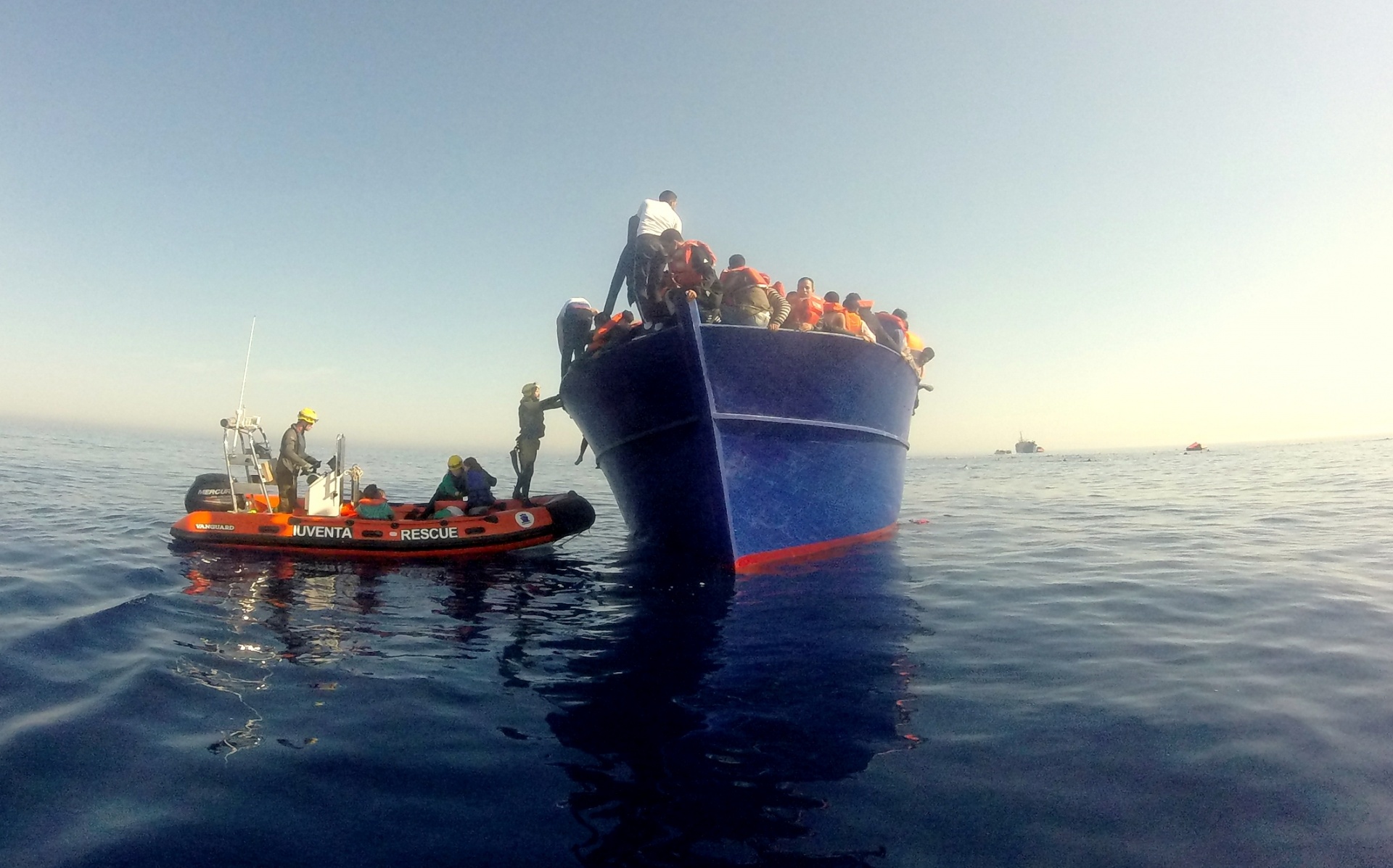
The accusations against the Iuventa 10 are politically motivated, Simon says.
“In 2016 the NGOs’ work was seen positively by the public and the media was reporting quite positively. But at the end of 2016, that image started to change. And the narrative started to emerge questioning whether the NGOs were co-operating with smugglers.”
That argument was continuously being made by far-right groups across Europe, like the Identitarian movement. But in 2016 the corporate media began quoting right-wing politicians making the same accusations.
“Fabrice Leggeri, the boss of [the EU’s Border and Coastguard Agency] Frontex, was in interviews asking questions about us saying things like: ‘We don’t know how the NGOs are financed’. ‘We don’t know what they’re doing out there’,” Hendrik says.
“A lot of high level politicians were also joining in. For example Sebastian Kurtz who was Austria’s foreign minister at that point was complaining about the NGOs. As was the German interior minister.
“Everything was based on suspicion and rumours. And I think the investigation was part of that bigger campaign to try to find something against the NGOs.”
In the end they got what they want, Beigui says.
“In 2016 and ’17 there were 12 civil assets in the Libyan SAR zone sometimes. And now there are only three.
“It’s really hard for them to get crew members now. Countries have changed their laws, making it harder to get crew members and meet safety measures.
“It’s also off-putting for volunteers when you don’t know if you’re going to end up under investigation or if you’re going to end up in a stand-off for two or three weeks.
“You don’t know how long you need to book off from work to join a mission. Will you be on the ship for two or three weeks, or will it be five or six weeks?
“There are nearly no civil assets in the Mediterranean now and everyday people are dying there.”
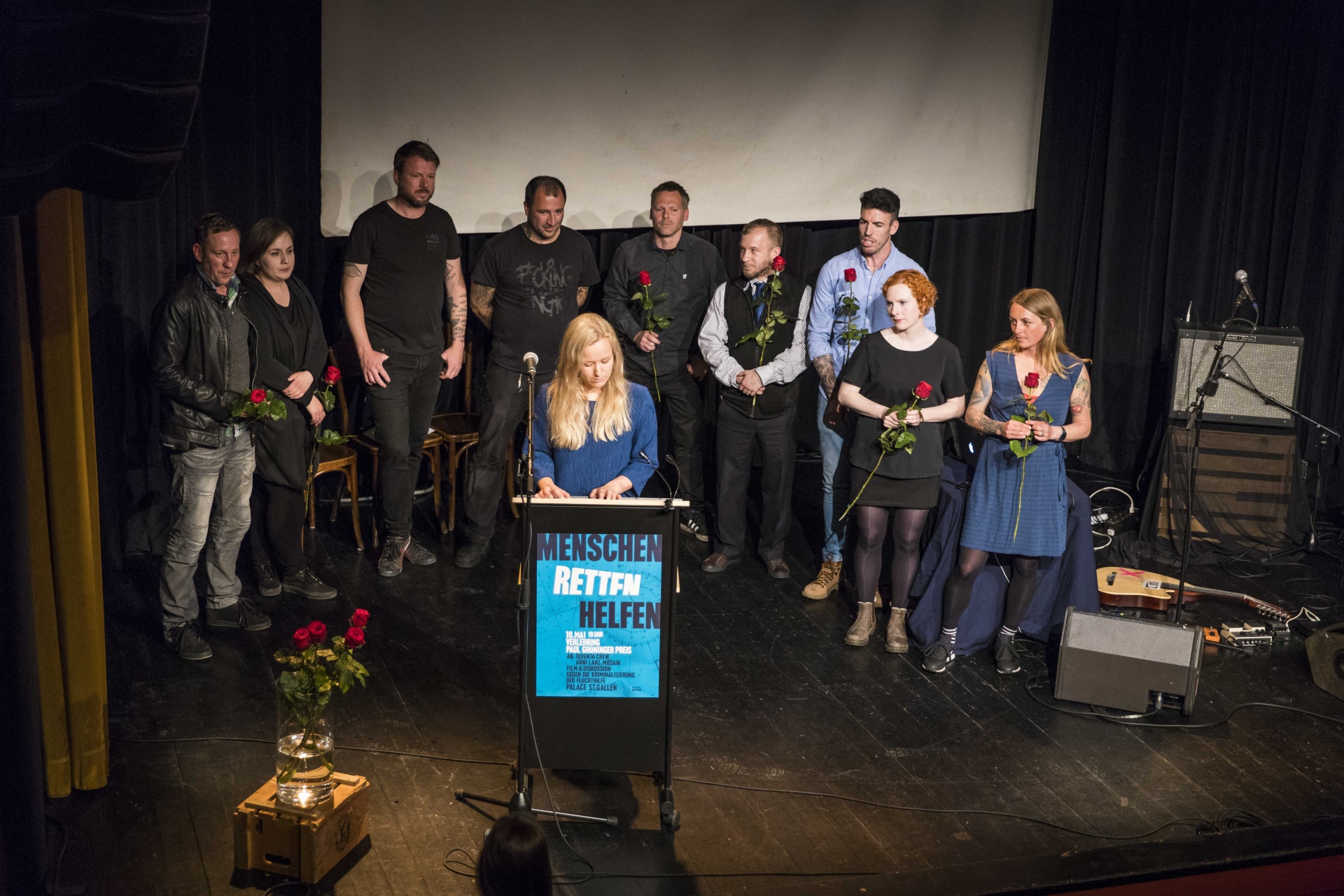
Europe doesn’t want witnesses to the consequences of their policies, Simon says.
“Since the beginning of the ’90s when the Schengen area was created, they were shutting down their outside borders more and more. And that led to more and more people trying to cross illegally on more and more dangerous routes. That actually led to the situation in the central Mediterranean.
“But the civil fleet is reporting it. And they’re constantly providing a picture of the consequences of this shutdown of Europe’s outer borders.”
“The fact you are talking with us means we’re doing our job, Beigui adds.
Before we finish our conversation, Beigui is keen to stress one last point.
“Get active,” he says urging people reading this interview to do something about Europe’s war on the civil fleet.
“It’s not easy of course with the lock downs but get creative. Write emails, put up signs in your windows and complain about the situation, and tell the world what happens to refugees in the seas and what happens in the camps in Greece.
“Mostly struggle, struggle, struggle. Start the fight. Abolish capitalism.”
To find out more about the Iuventa 10 and their legal fight against the Italian state, visit iuventa10.org. You can follow them on Twitter via: @iuventa10.
Dariush was talking to us from the deck of the human rights monitoring ship the Mare Liberum, which is current in Greek water. For more on its mission visit: mare-liberum.org/en.
Ben Cowles is the Star's web editor. He is co-host of the Podaganda podcast. You can watch a video version of the interview above or on YouTube and read more about the civil fleet on his blog civilfleet.com. You can follow him on Twitter via: @Cowlesz.

 Ben Cowles
Ben Cowles